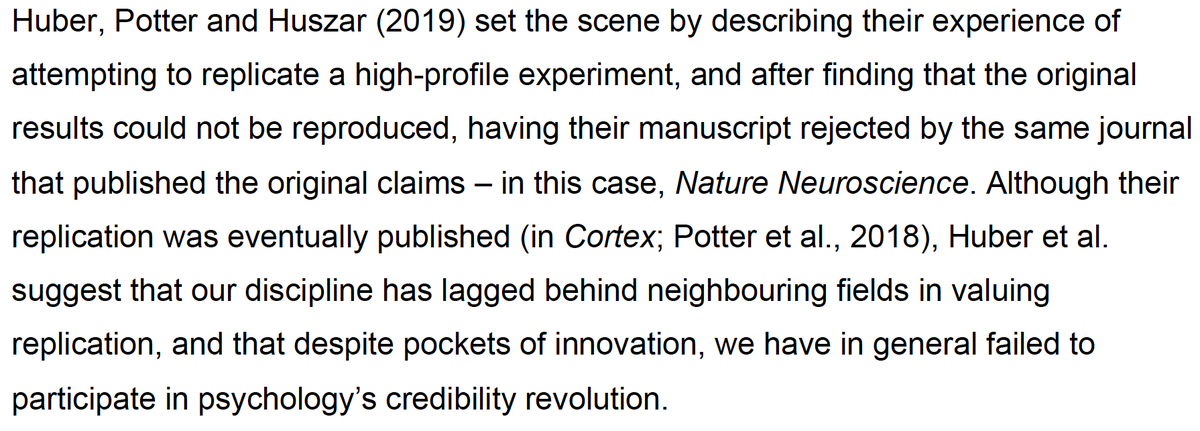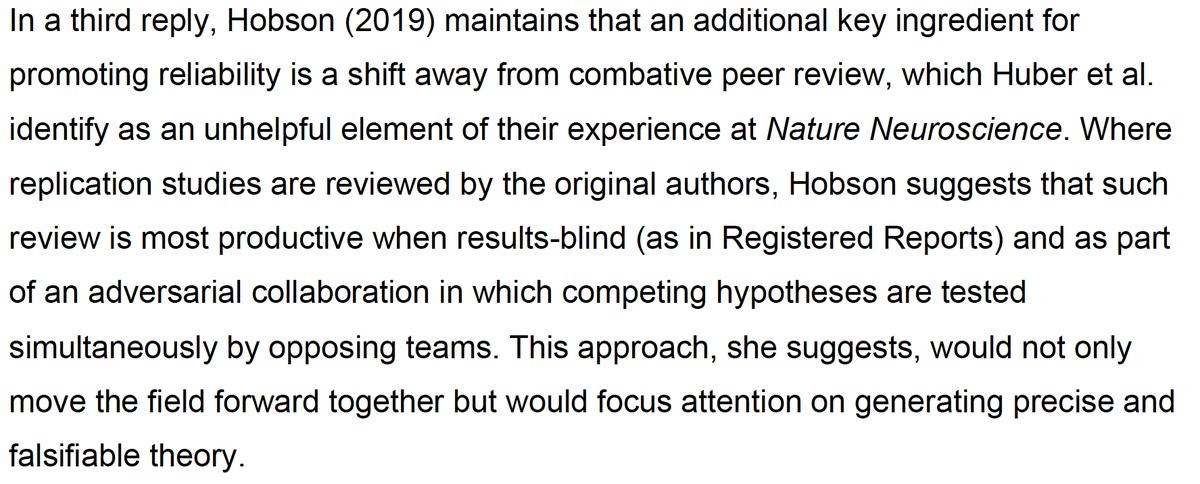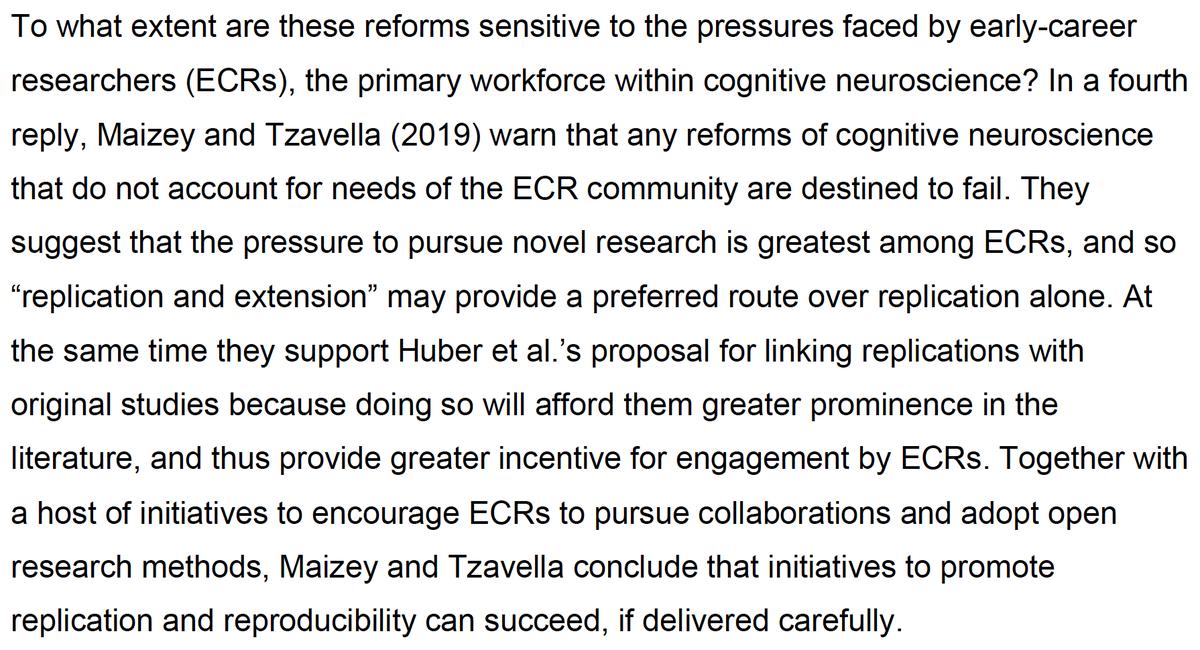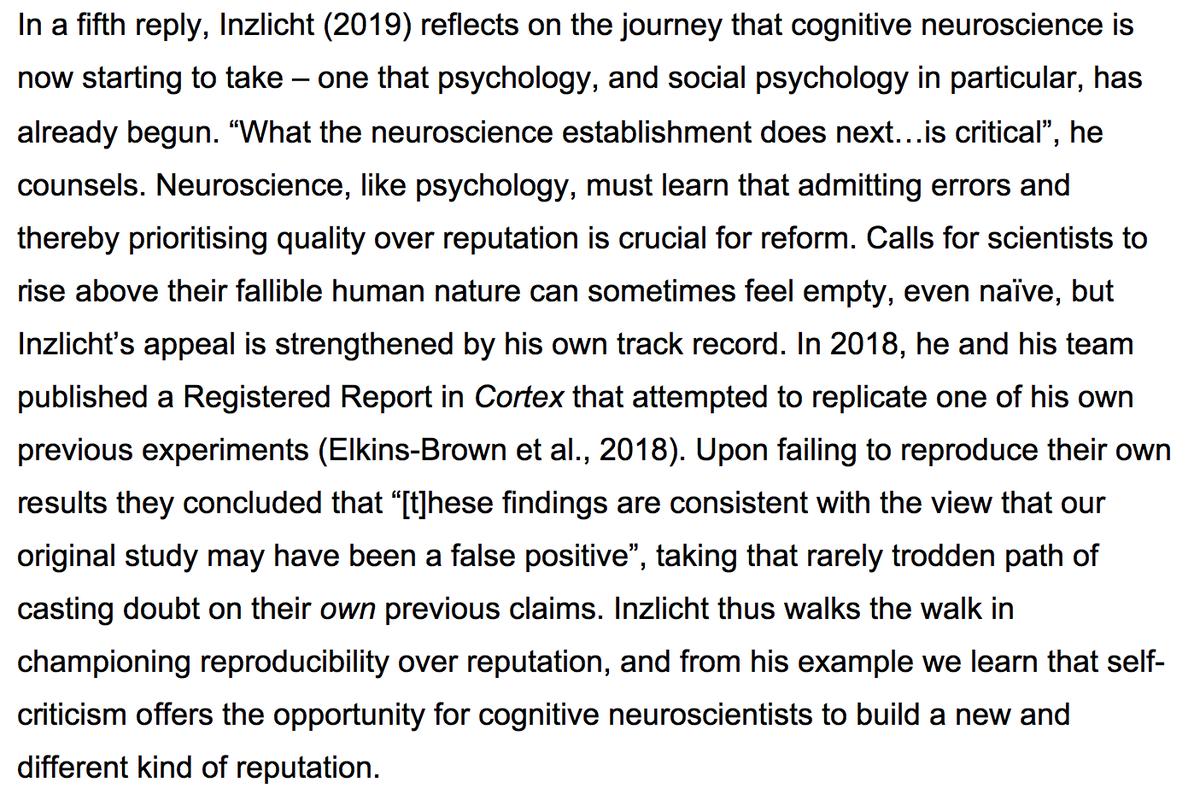




Almost nobody ever does this in cogneuro. /10
But these are NOT enough and this year we’ll be launching two new initiatives. /12
Full thread also unrolled here: neurochambers.blogspot.com/2019/03/the-ba…
/end





Get real-time email alerts when new unrolls are available from this author!
Twitter may remove this content at anytime, convert it as a PDF, save and print for later use!

1) Follow Thread Reader App on Twitter so you can easily mention us!
2) Go to a Twitter thread (series of Tweets by the same owner) and mention us with a keyword "unroll"
@threadreaderapp unroll
You can practice here first or read more on our help page!
